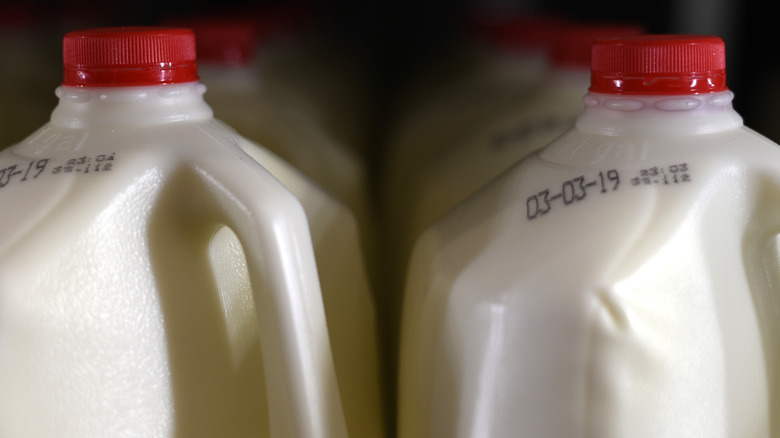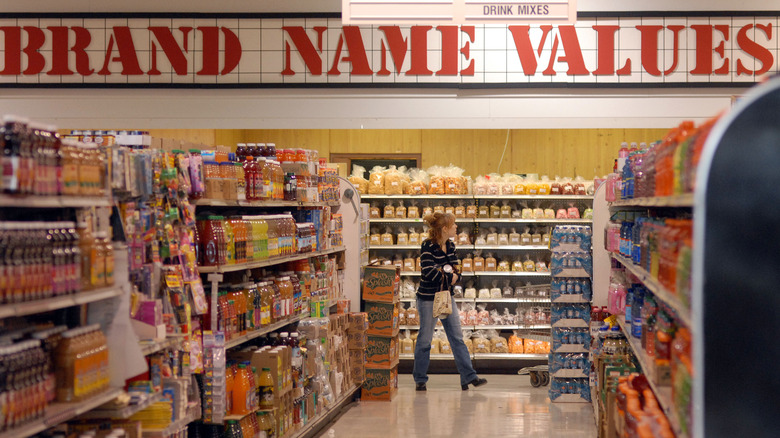What Is A 'Salvage Grocery Store' And How Does It Work?
Many people are trying to reduce how much they spend on groceries, especially with prices for most foods (predominantly pantry staples like milk, eggs, bread, and butter) skyrocketing in the past two years. If you are one of those people, you may find yourself clipping coupons, buying in bulk, looking for sales, and even buying from discount grocery stores. You may also be very careful about the foods you buy, checking the expiration dates so you don't buy food that will spoil too quickly.
But have you ever wondered what happens to food that nears its expiration or sell-by date? What about food that dates have already passed? Those dates aren't an exact science, and many foods can still be purchased after the expiration dates have come and gone. Many grocery stores will try to discount the foods and sell them quickly. Otherwise, they have to throw them away. Some of these foods, though, get lucky, and they end up with a second life in a salvage grocery store.
Unsaleables, and reclamation centers, and salvage grocery stores -- oh, my!
A salvage grocery store — sometimes called a food outlet — is a type of retail store that sells food products at a significantly reduced price compared to traditional grocery stores. These stores typically purchase food and other items past their expiration date, and they will even buy discontinued products or damaged goods, called "unsaleables," from manufacturers, wholesalers, and retailers. It's one of the ways larger grocery stores dispose of expired foods. Salvage grocery stores then sell these items at a discounted price, sometimes up to 70% off the original retail price, saving consumers a lot of money.
The unsaleables are sent to warehouses called reclamation centers that are most often run by the stores. Once there, the items like broken jars, contaminated foods, or rotten foods are disposed of. The rest of the products are sold to a salvage center or donated to food banks. This is one way grocery and retail stores cut down on waste.
How to shop at salvage stores
You have probably seen a salvage grocery or retail store, and you may not have realized it. On the grocery front, stores like Grocery Outlet Bargain Market and AJ's Surplus are classic salvage grocery stores, getting expired or near-expired foods and cutting the costs to pass on savings to consumers. For retail, you can look at stores like TJ Maxx and Marshall's, which often get their products from Target salvage.
Shopping at a salvage grocery store can save you a lot of money, but you should always check the food before buying it. Do not check just the expiration or sell-by dates on the package, but check the food and the containers. Look for mold, discoloration, or an unusual odor on foods, and check for rust spots on cans. If the food's packaging is bloated or leaking, that may be a sign that the food has gone bad. Frozen foods should be solid and not have any signs of freezer burn.


